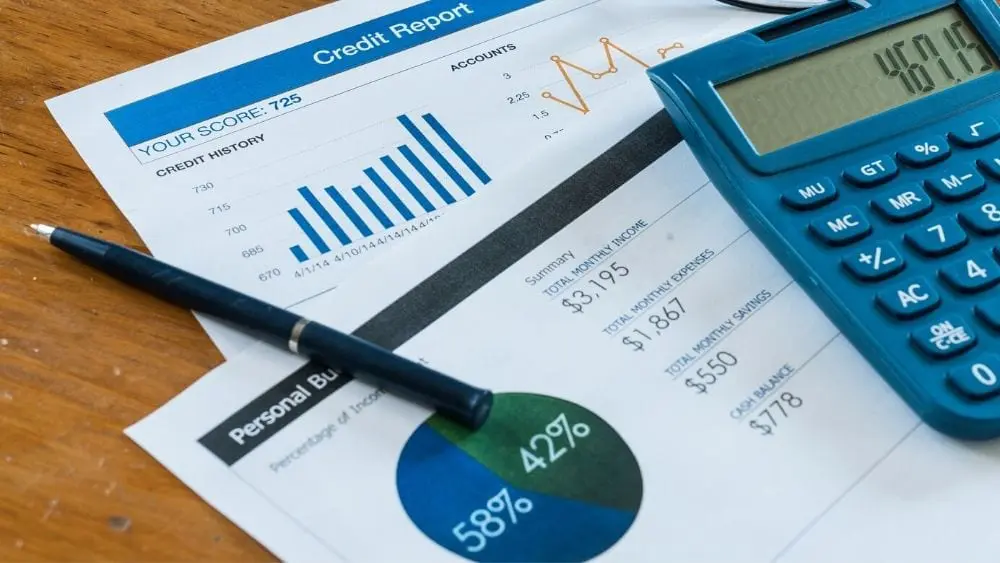
With its stunning coastlines and beaches, cozy small towns packed with New England charm, and reputation as one of the safest states in the country, it’s easy to love life in Maine. Are you a homebuyer about to close on a new home in the Pine Tree State?
Homebuyers are often preoccupied with saving their down payment and new furniture. Closing costs are an umbrella term, encompassing all the fees homebuyers need to pay for on closing day. Think of key steps in the homebuying process that you need to pay for: an appraisal, home inspection, legal fees, setting up an escrow account, buying home insurance, and paying property taxes. Combined, these fees can be daunting. Ultimately, closing costs amount to about 2 to 5 percent of the home’s purchase price.
Because closing costs can vary by state, here’s a look at what you can expect to pay in Maine, what’s typically included, and how you can potentially lower these costs.
How Much are Closing Costs in Maine?
Maine has some of the country’s lowest closing costs, at $1,961, on average, for a home priced at $234,242, according to a 2021 report by ClosingCorp, which provides research on the U.S. real estate industry. That price tag makes up 0.84 percent of the home’s price tag. Overall, Maine ranked 12th for the lowest closing costs behind Iowa, Arizona, and Arkansas.
Missouri takes the win for lowest closing costs at just $1,290, while the District of Columbia pulled in the highest closing costs at a whopping $13,722. For comparison’s sake, the national average for closing costs is $6,087.
But homebuyers in Maine should expect to spend far more than. That’s because ClosingCorp’s data excludes common closing costs expenses, such as loan origination fees and private mortgage insurance. Loan origination fees can cost up to 1 percent of your purchase price, while PMI can be as high as 2.25 percent of your home loan. Both expenses add thousands of dollars to your bill.
Home values have also increased exponentially in the Pine Tree State: at the end of the third quarter of 2021, the average home price jumped by 16.92 percent to $320,000 compared to a year before, according to Maine Association of Realtors market data. ClosingCorp pegged the average home price in Idaho at $234,242 in 2020.
Keep in mind, closing costs fluctuate greatly depending on a handful of factors, such as your purchase price, down payment, credit score, location, and the type of mortgage.
What’s Typically Included in Maine’s Closing Costs?

Each state has its own nuanced set of rules when it comes to real estate closings, from hiring an attorney to paying for real estate transfer taxes.
With so many moving parts, it’s easier to group your closing costs into three fee categories: property, mortgage, and annual.
Here’s what to expect in Maine.
Mortgage-Related Fees
Unless you’re buying your new home with cold hard cash, you’ll need to get approved for a mortgage. These are the closing cost fees you’ll incur from your lender:
Loan Origination Fees
Home loans don’t come for free – first up, your mortgage broker will charge you loan origination fees for all the administrative work involved, including, producing pre-approval letters for your house hunting, to processing your funding at closing, and everything in between.
Estimate this fee to be about 0.5 percent to 1 percent of your loan.
Credit Report Fees

Your lender will need to pull your credit history with the various bureaus. Expect the lender to pass along this expense to you. If more than one borrower is on the loan application, double this cost.
Private Mortgage Insurance
If you aren’t providing a 20 percent down payment, your lender will expect you to buy private mortgage insurance (PMI). This allows borrowers to qualify for a conventional loan even if they put down only 5 to 19.99 percent of their mortgage.
While you’re paying for the insurance, the coverage is for your lender in case of default.
This cost isn’t included in the ClosingCorp expense tally, but PMI typically ranges from 0.25 percent to as high as 2.25 percent of your loan. Once you hit the 20 percent mark in home equity, you don’t have to pay for PMI.
Attorney Fees
Maine is one of several states requiring homebuyers to hire a real estate attorney.
Your real estate lawyer reviews the property’s title examination, certifying to your lender and title insurance company that the property’s title is free and clear. According to state law, you are permitted to choose your attorney.
Attorneys can also help with other legal aspects, from drafting your purchase agreement and contract of sale to being present on closing day for the deed transfer.
Legal fees vary, depending on the complexity of the sale.
Escrow Fees
In Maine, title companies or attorneys can assist with closings. You may decide to hire a title company to carry out several jobs, including holding onto your funds in an escrow account.
When your home purchase goes into escrow, you’ve set up a holding account for funds, such as your earnest money deposit, payment for various fees, and your down payment. Your title company will only release the funds when all parties have met their conditions and the ink is dry on closing day.
Escrow fees, also called closing fees, are usually paid by the buyer. Keep in mind, this can change depending on negotiations between you and your seller.
Property-Related Fees
Before you make the single biggest purchase of your life, you’ll need to hit some pivotal checkpoints to make sure your new home is a sound investment.
Maine Title Search and Title Insurance
Your title company, attorney, or lender may insist on a title examination to ensure you’re buying property that’s free of ownership disputes, unpaid taxes, judgments, or outstanding lawsuits.
The title search involves poring over historical records, such as deeds, court records, and property and name indexes.
Once the title search is complete, you’ll need to buy an owner’s title insurance policy and a lender’s title insurance policy for your lender. This insurance is in effect until you sell your property and protects both parties in case of “defects in title.” It’ll cover all court costs and related fees should something go awry.
In Maine, homebuyers typically pay for the title search and both title insurance policies.
Maine Real Estate Transfer Tax
Whenever a home transfers hands, buyers and sellers incur a real estate transfer tax in all but 13 states in the U.S. In Maine, the transfer tax rate is $2.20 for every $500 of property value. The tax is split right down the middle between buyer and seller. Basically, as the buyer, you’re on the hook for $1.10 in transfer taxes for every $500 of property value.
This is a hefty transfer tax, especially compared to other states. In Illinois and Kentucky, for example, the transfer tax is set at $0.50 per $500 of property value.
According to the state website, there are 21 exemptions to the transfer tax laws. If the property is changing ownership between family members, you won’t have to pay a transfer tax, for example. It’s worth keeping these exemptions in your back pocket in case any apply to your situation.
Your municipal recording office may charge a fee for recording the transfer of the deed in public records.
Property Appraisal
Before your lender transfers the funds, your potential new property must be appraised. This step ensures your big buy is priced at the right market value. This way, if you default on your home loan, your lender knows it can sell the property to recoup its losses.
The lender will send a third-party appraiser to the property. They will scan the home, its size, features, and condition, and determine how it stacks up next to homes priced similarly in the community.
Consult with your lender on how much an appraisal costs because they’ll be using their go-to appraiser for this step.
Property Inspection
For peace of mind before you invest your life’s savings, hire a home inspector to examine the interior and exterior of the property.
A home inspector will zero in on big and small aspects of the home’s condition, from the roof to the foundation to the drainage systems and heating and ventilation.
This step is worth every penny. Your home inspector will flag any issues you may want to flag to your seller before finalizing the deal.
You can shop around for a home inspector so price points will vary.
Annual Fees
Between utility bills to monthly mortgage payments, owning property is an endless cycle of bills. Your closing costs will include a handful of fees you’ll need to start paying annually. They include:
Property Taxes
Paying for property taxes is a rite of passage into homeownership. As part of your closing costs, you’ll need to pay for the first six months to a year of property taxes.
Property taxes are a prepaid expense, meaning they need to be paid at closing and can’t be rolled into your home financing.
In Maine, homeowners pay 1.27 percent of their home’s assessed market value in property taxes. The Pine Tree state ranks 16th with the most expensive property taxes, according to the Tax Foundation.
Count on paying for property taxes every April.
Homeowner’s Insurance
Before your lender issues your home loan, you’ll need to buy a homeowner’s insurance policy that will cover the first year.
Homeowner’s insurance is mandatory. It’ll cover any physical damage to your home caused by fire, wind, vandalism, or theft.
You may even need to take out additional insurance policies on your home if, say, you want to ensure fine art, jewelry, or other heirlooms.
HOA Fees
Nearly 30 percent of homeowners in Maine are part of a homeowner’s association. With this in mind, you may have to budget for HOA fees in your closing costs, and annually moving forward.
HOA fees cover the cost of community amenities, such as fitness centers, pools, and community parks. They also pay for keeping your neighborhood running, from trash removal to security.
The more elaborate your HOA is, the more you should expect to pay. You may have high HOA fees if your neighborhood has aging buildings that need extra TLC to maintain, too.
At closing, your seller will pay their outstanding HOA balances, then transfer membership to you. Make sure you ask about HOA fees upfront so you will know what to expect to pay.
How Can I Lower my Closing Costs in Maine?
With a lengthy list of closing cost expenses, homebuyers may face sticker shock. But here’s a silver lining: there are many ways you can save on closing costs from applying for financial assistance to negotiating with your seller.
Here’s a look at the key strategies that may help lower your closing costs:
Closing Cost Assistance
Homebuyers should take advantage of Maine’s homeownership assistance programs as it could put a significant dent in their closing costs.
The Maine State Housing Authority (MHSA) offers a series of homeownership programs that help secure below-market interest rates or even provide a grant to pay a portion of a down payment and closing costs.
From Auburn to Lewiston and Portland, there are also local financial assistance programs to help you drive down the costs.
Get Your Finances in Shape
Before shopping for a home loan, focus on improving your credit score as much as you can.
Pay down your debts, don’t make any late or missed payments, and don’t apply for more credit before making your case to lenders. With a great credit score, you may be able to secure a lower interest rate and competitive terms for your loan. Scoring a lower interest rate will save you thousands of dollars over the lifetime of your mortgage.
Apply as much as you can towards your down payment, too. The closer you get to the 20 percent threshold, the less you’ll have to pay in PMI. Once you reach 20 percent equity, you can stop paying for this insurance.
Comparison Shop
While some closing cost fees are fixed, you can shop around for some services, such as your lender, home inspector, and title company.
Take time to compare vendors, ensuring they’re appropriately accredited with glowing reviews from previous customers.
With a shortlist in hand, ask for quotes so you can make sure you’re getting the best deal.
Negotiate Lender Fees
If you have a longstanding, established relationship with your lender, you may have some wiggle room with your loan setup fees.
You could ask your lender to omit certain expenses from your bill, such as rate lock fees, loan processing fees, or broker rebates. If that doesn’t work, you could also ask to stagger these expenses so they’re paid in stages instead of all at once at closing.
Seller Concessions
Try negotiating the home sale, especially if you’re in a buyer’s market and your seller or builder is eager to offload their property.
There are many ways you can try to reassign some of the closing costs: Buyers can submit a full-price offer with a caveat that the seller must pick up all your closing costs. Buyers can also ask their builder to pay a portion of the closing costs, so they can free up cash to pay for a string of pricy upgrades.
No-Closing-Cost Mortgages
With a “no-closing-cost” mortgage, your lender agrees to pay for part of all your closing costs, but you must pay a higher interest rate.
Be careful with this option: It could cost you more money overall because of the bump in your interest rate.
Add Closing Costs to your Home Financing
Aside from the prepaid expenses that must be paid at closing, you could opt to roll your closing costs into your home loan. This could add thousands of dollars to your mortgage.
You won’t have to pay for closing costs on closing day, but your monthly mortgage payments will be a bit higher.

Carmen Chai is an award-winning Canadian journalist who has lived and reported from major cities such as Vancouver, Toronto, London and Paris. For NewHomeSource, Carmen covers a variety of topics, including insurance, mortgages, and more.
 2021 Guide to Closing Costs in Louisiana
2021 Guide to Closing Costs in Louisiana